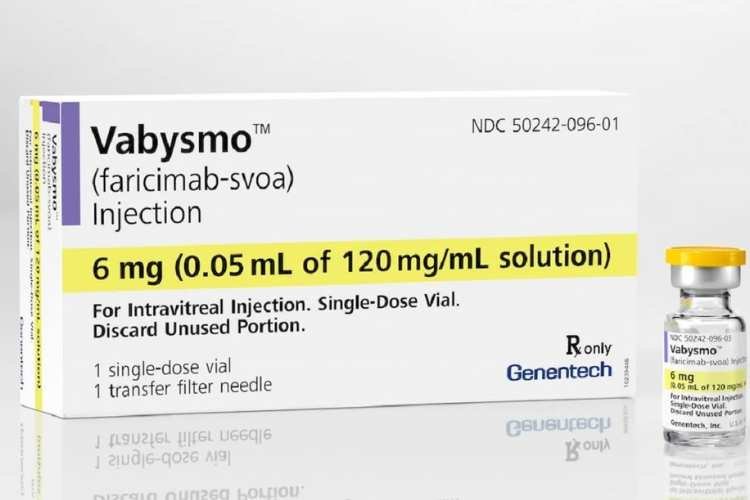Roche has unveiled promising long-term findings from the global phase III BALATON and COMINO trials, which investigated the extended treatment intervals of Vabysmo (faricimab) in individuals with macular edema resulting from branch and central retinal vein occlusion (BRVO and CRVO).
From the 24th to the 72nd week, both studies involved patients receiving Vabysmo through a treat-and-extend dosing approach, customized based on each patient’s response to treatment. The data revealed that patients treated with Vabysmo successfully extended their treatment intervals to as long as four months while preserving the vision improvements achieved during the initial 24 weeks of the trials. Vabysmo consistently demonstrated substantial and sustained reduction of retinal fluid from baseline to the 72nd week, as evidenced by a decrease in central subfield thickness. Notably, this marks the first instance where both vision and anatomical enhancements have been maintained for over a year, thanks to a personalized treat-and-extend dosing approach in global phase III trials for both BRVO and CRVO. In both studies, Vabysmo exhibited favorable tolerability, and its safety profile aligned with previous research.
Also Read: Vabysmo, Roche’s Top Eye Medicine, Crosses Blockbuster Threshold Ahead Of Competitors
Retinal vein occlusion (RVO) affects a staggering 28 million individuals worldwide. If approved, Vabysmo would secure its third indication, in addition to its existing approvals for neovascular or ‘wet’ age-related macular degeneration (nAMD) and diabetic macular edema (DME). Together, these three conditions impact approximately 70 million people globally and rank among the leading causes of vision impairment.
Detailed results from weeks 24 to 72 of the phase III BALATON and COMINO trials will be presented at an upcoming medical conference.
Data from the initial 24 weeks of these trials, unveiled at Angiogenesis, Exudation and Degeneration 2023, demonstrated both early and sustained vision enhancement with Vabysmo, with both studies successfully meeting their primary endpoints by achieving non-inferior vision gains compared to aflibercept. A secondary endpoint showed that Vabysmo effectively achieved rapid and robust drying of retinal fluid from baseline to week 24, as measured by a reduction in central subfield thickness.
Also Read: Roche’s Vabysmo Shows Promising Vision Loss Improvement At ASRS
“These are the first retinal vein occlusion (RVO) studies to show vision maintenance and anatomical improvements up to 72 weeks in both central and branch RVO. These data further support Vabysmo’s potential as a new treatment for RVO, allowing people to preserve their vision while spending less time managing their condition.”
– Levi Garraway, M.D., Ph.D., Roche’s Chief Medical Officer and Head of Global Product Development
The data collected up to the 24-week mark have been submitted to global health authorities, including the United States Food and Drug Administration and the European Medicines Agency, with a decision from the US FDA anticipated in late 2023.
Vabysmo stands out due to its unique design, targeting and inhibiting two critical signaling pathways associated with several vision-threatening retinal conditions by neutralizing angiopoietin-2 (Ang-2) and vascular endothelial growth factor-A (VEGF-A) to restore vascular stability. In RVO, elevated levels of Ang-2 are believed to drive disease progression.
As of now, Vabysmo has received approval in over 80 countries worldwide for individuals dealing with nAMD and DME, including major markets such as the United States, Japan, the United Kingdom, and the European Union, with public reimbursement in more than 25 regions and over 1.5 million doses distributed globally.





























